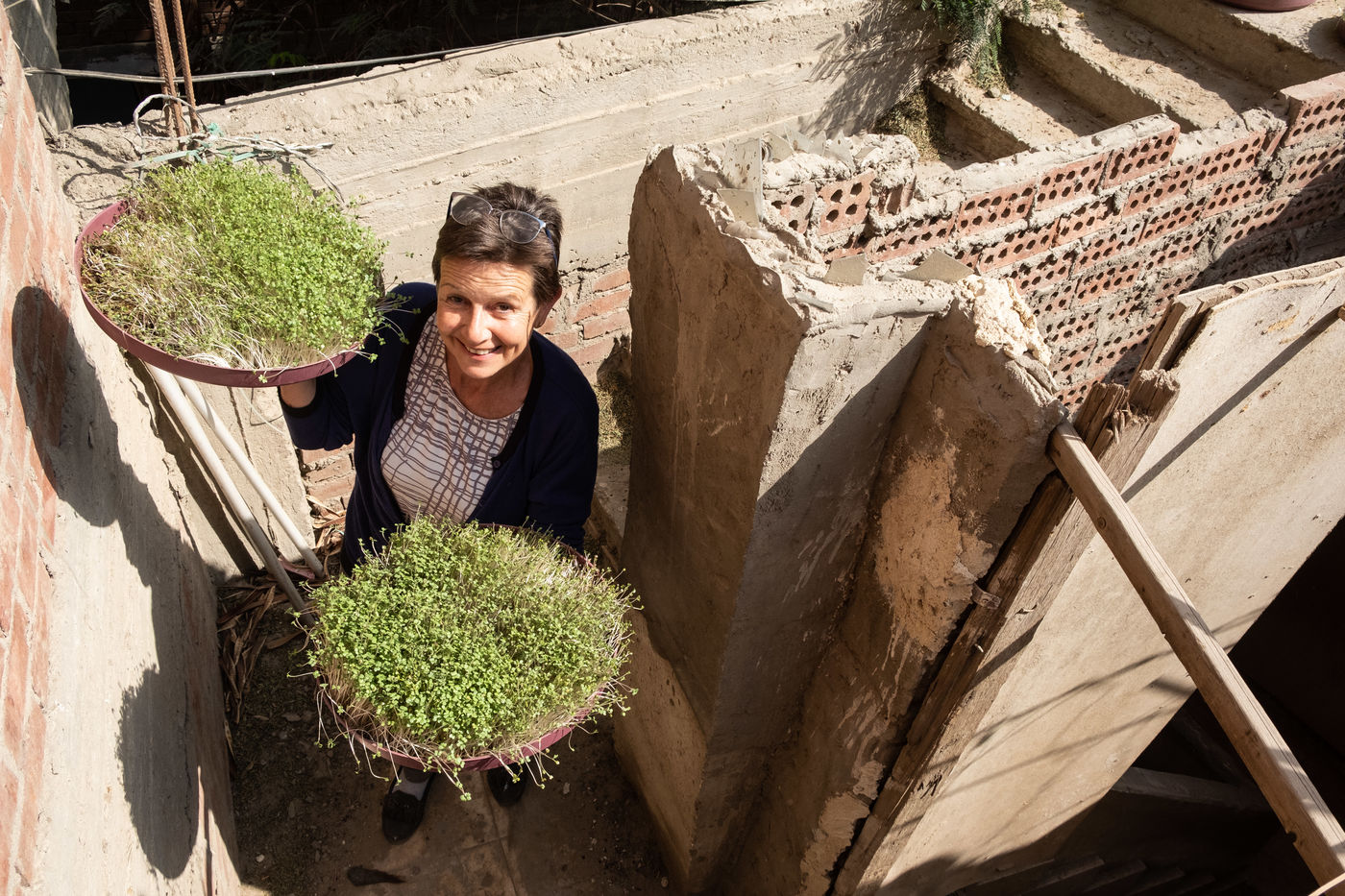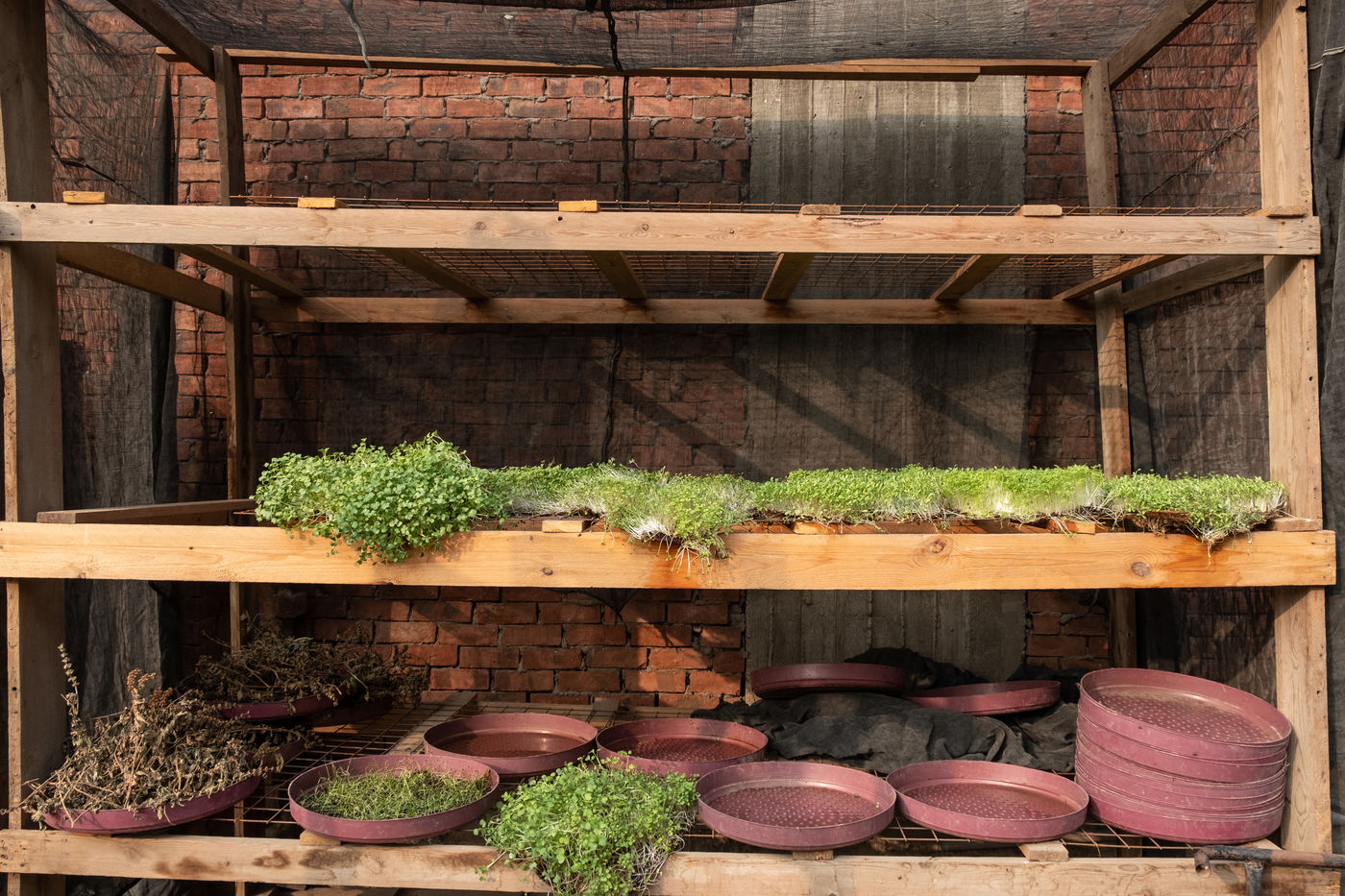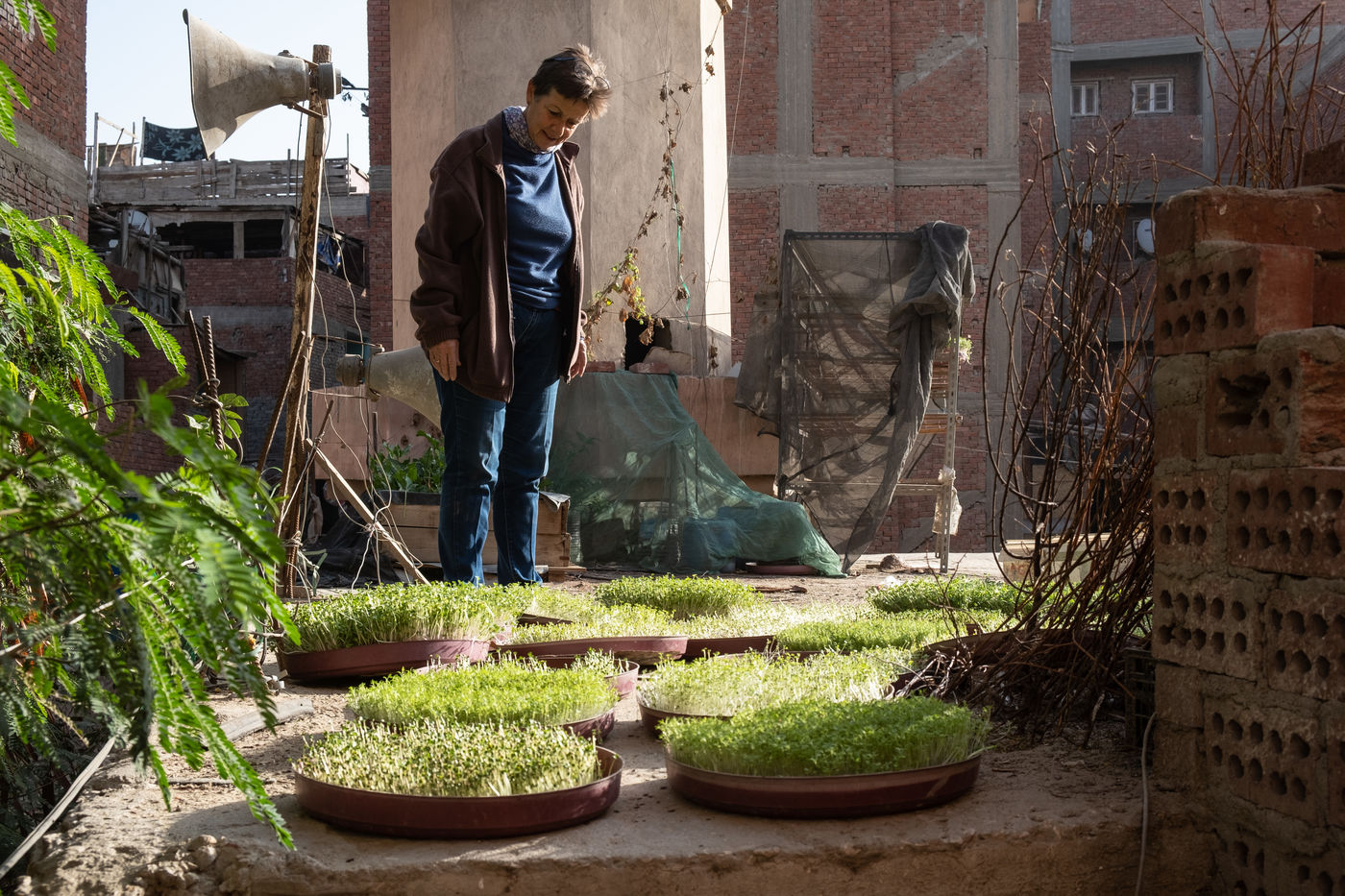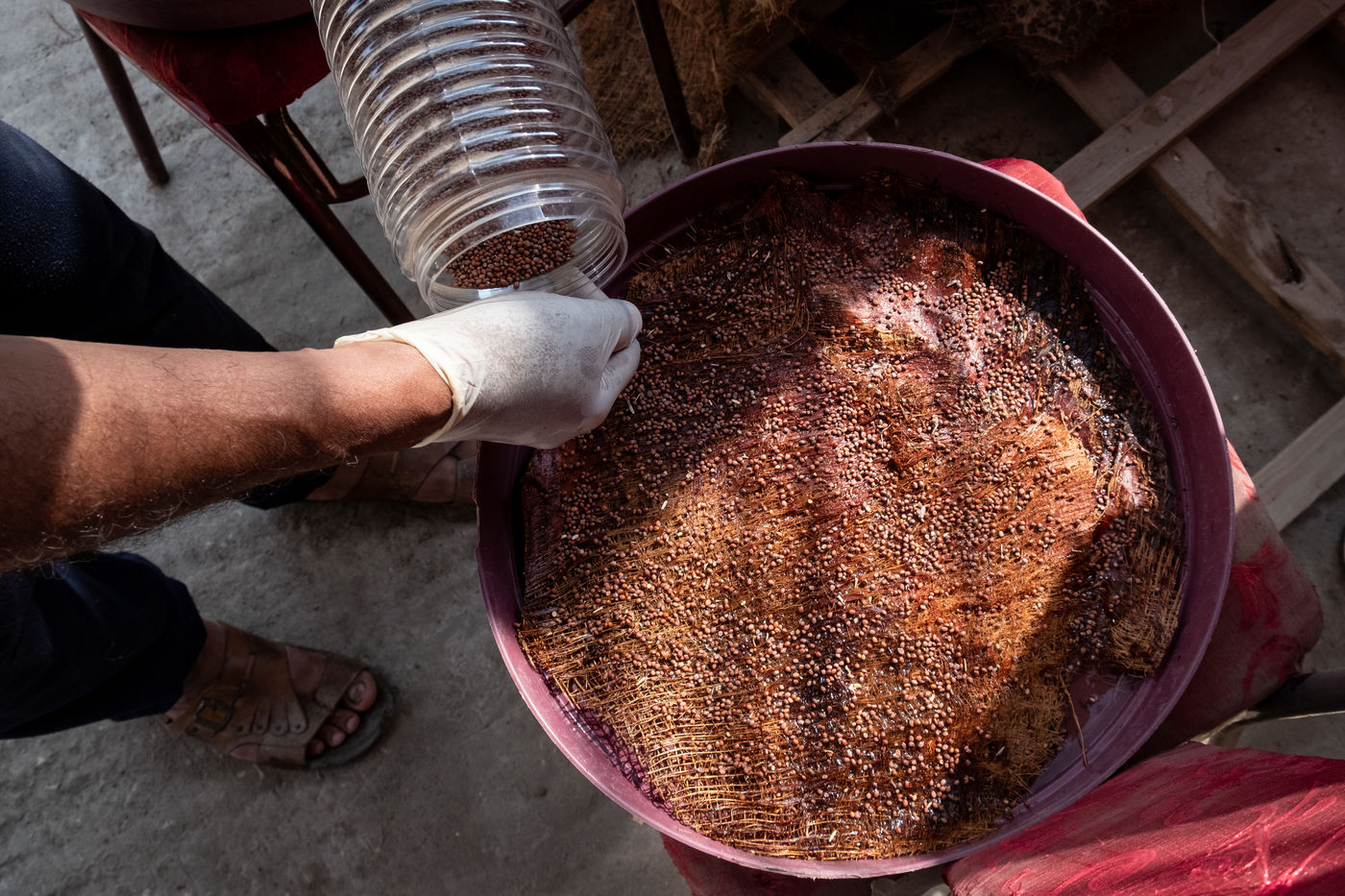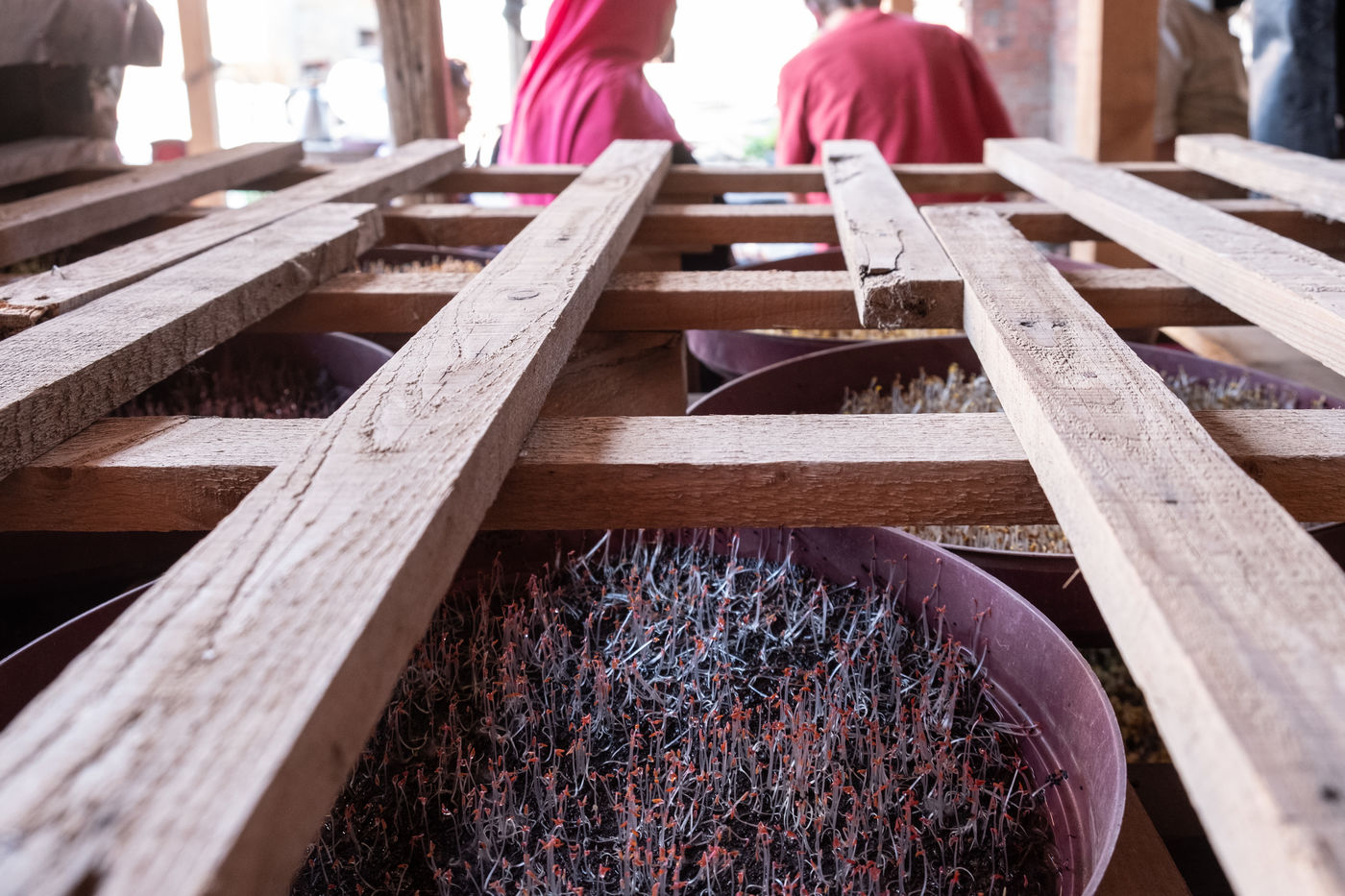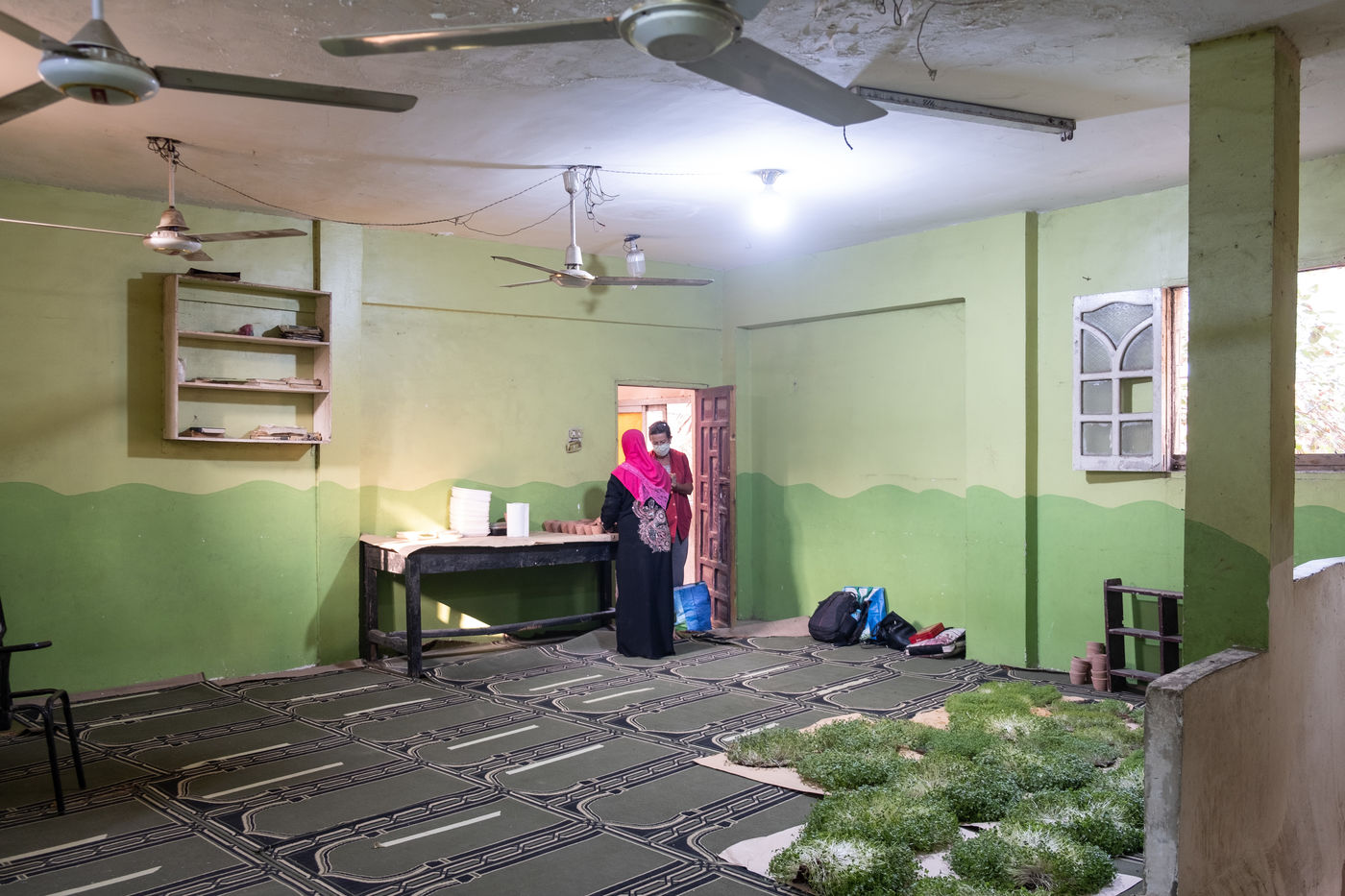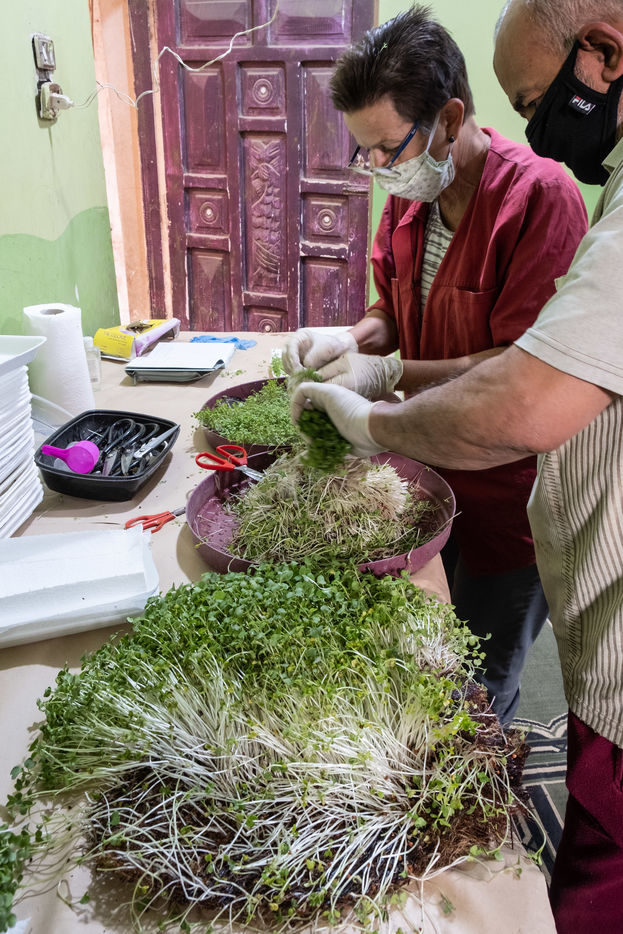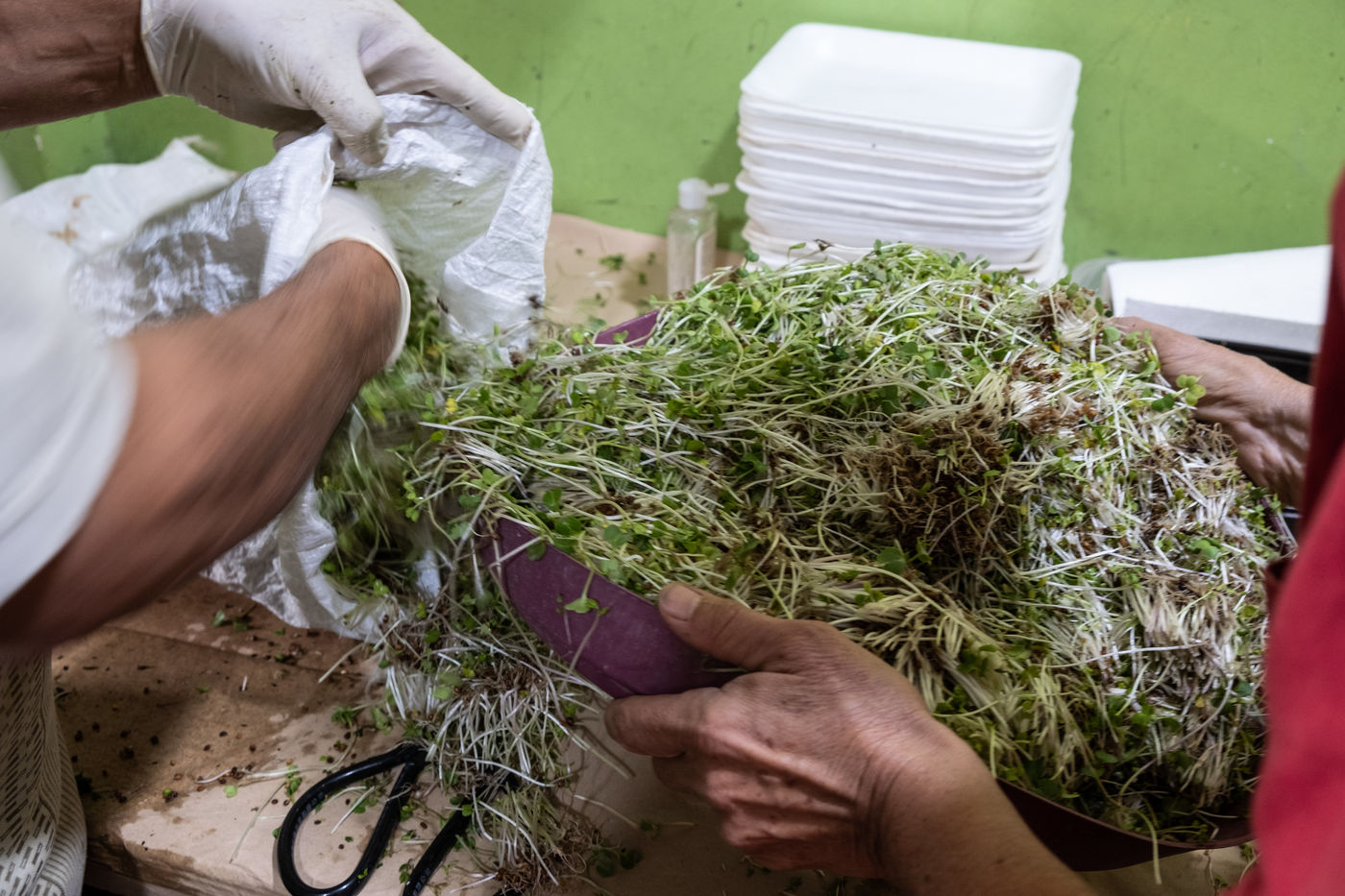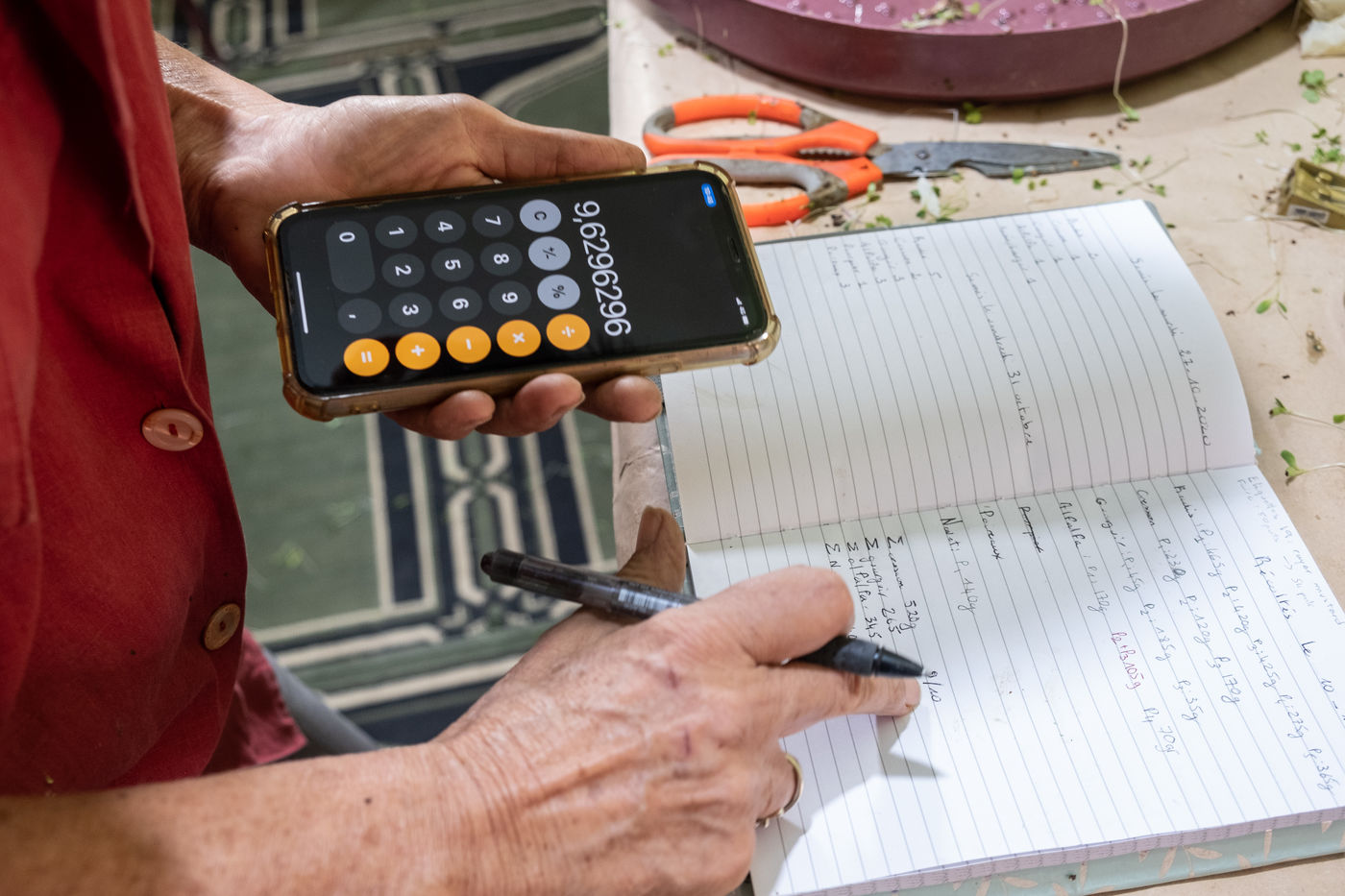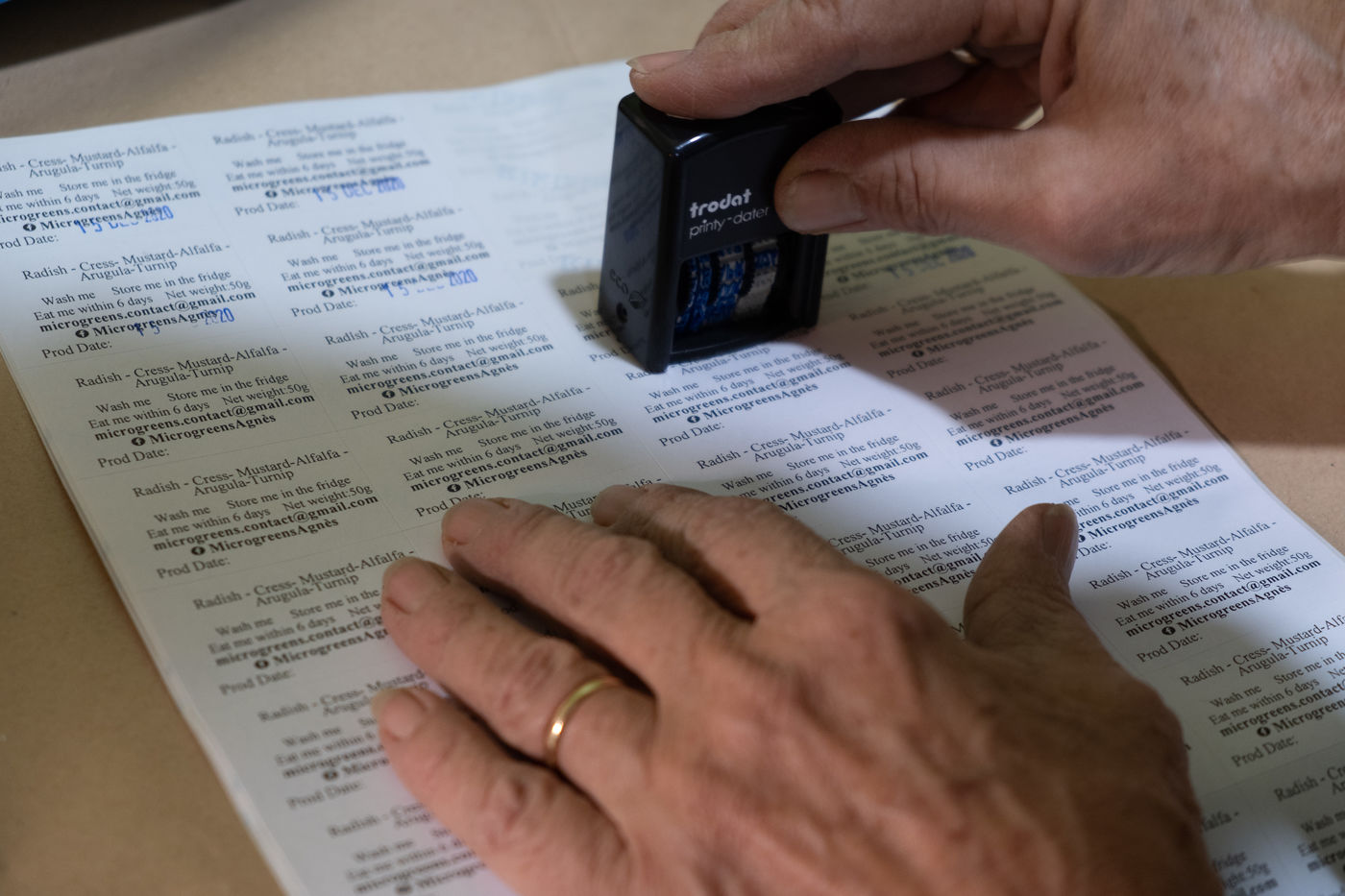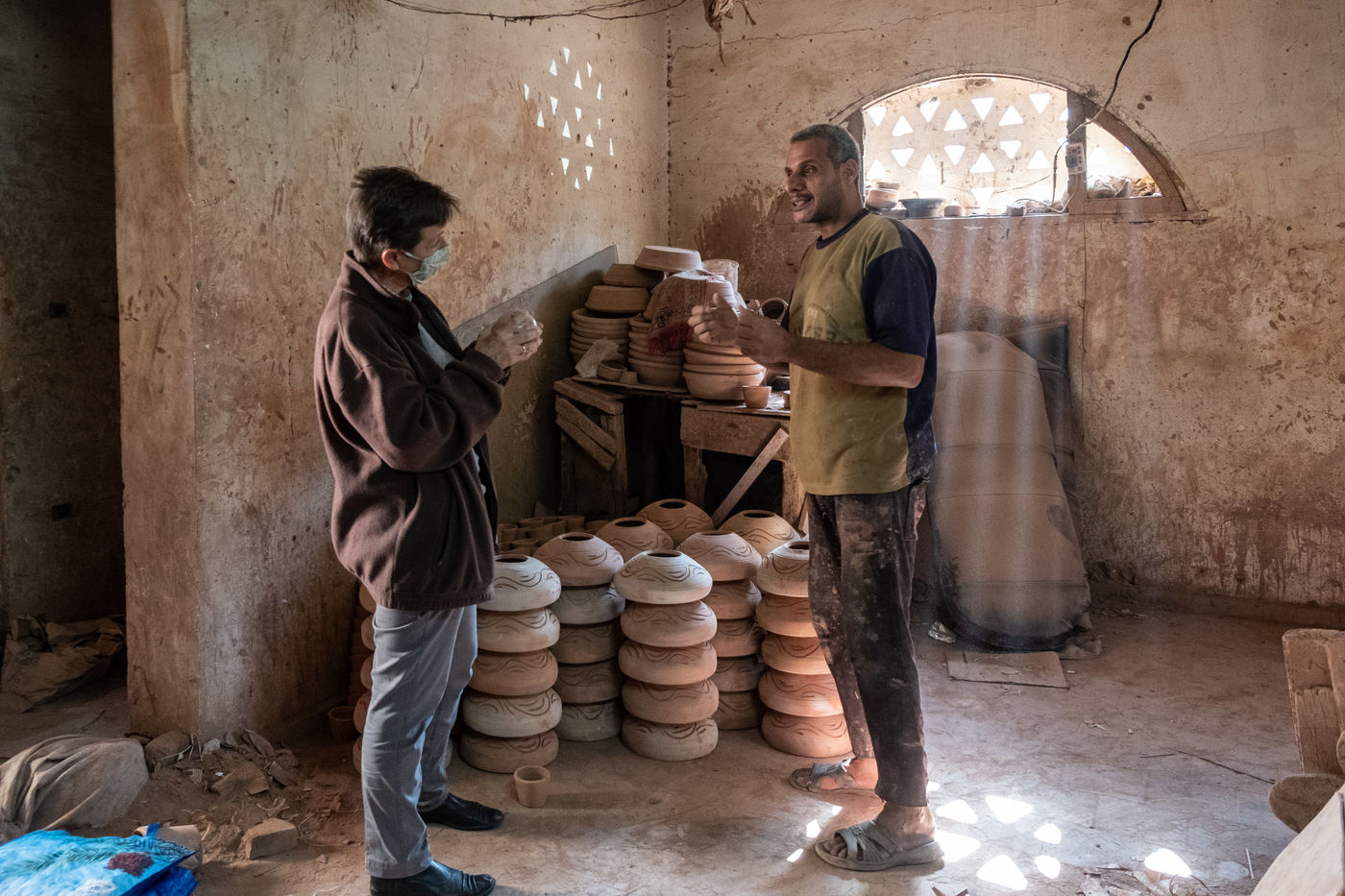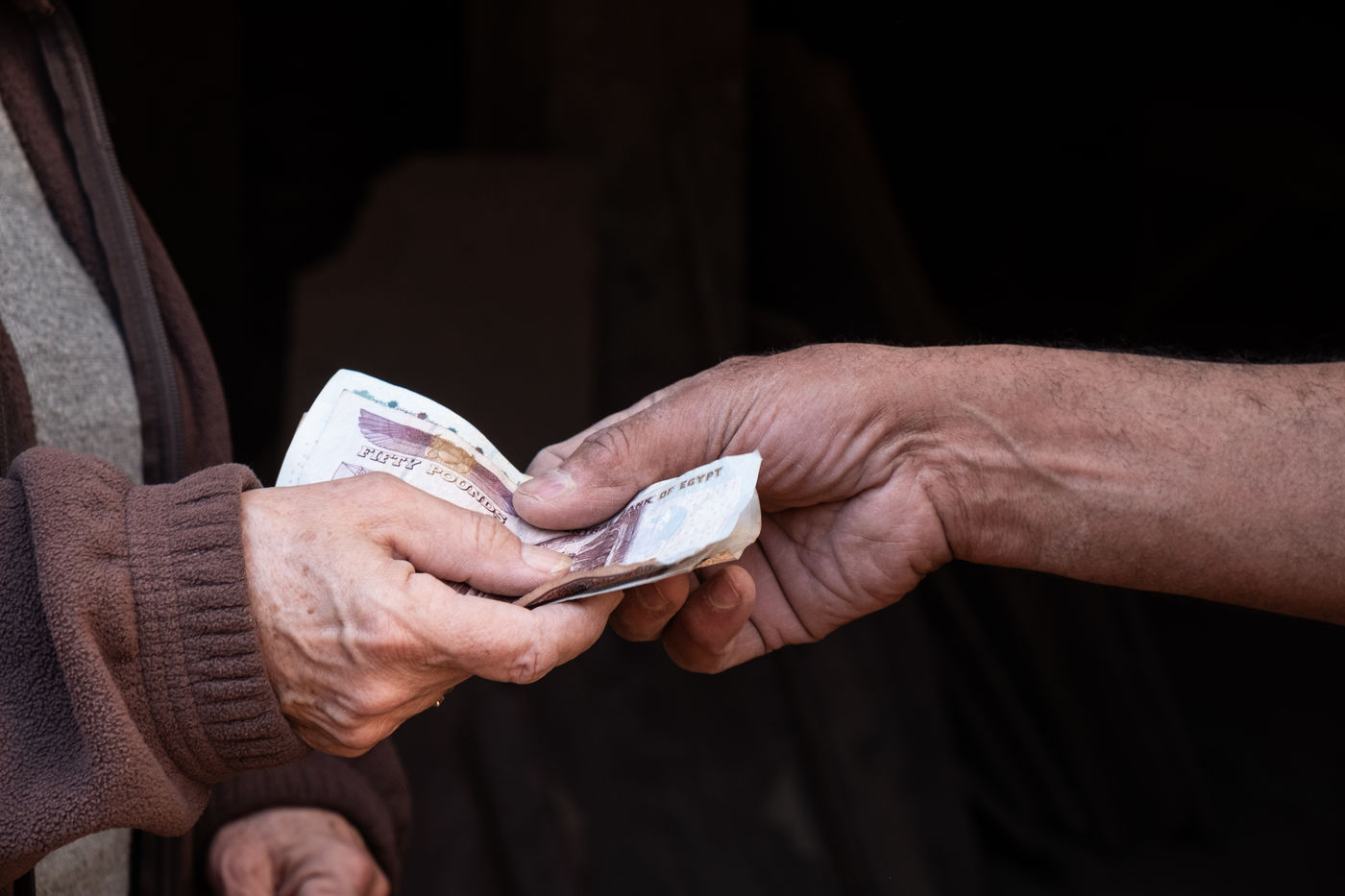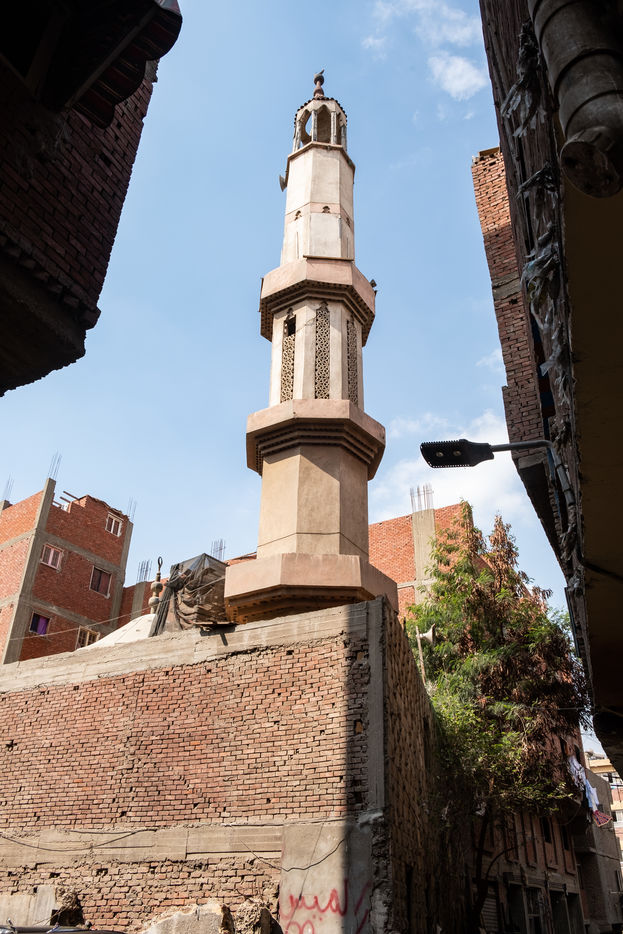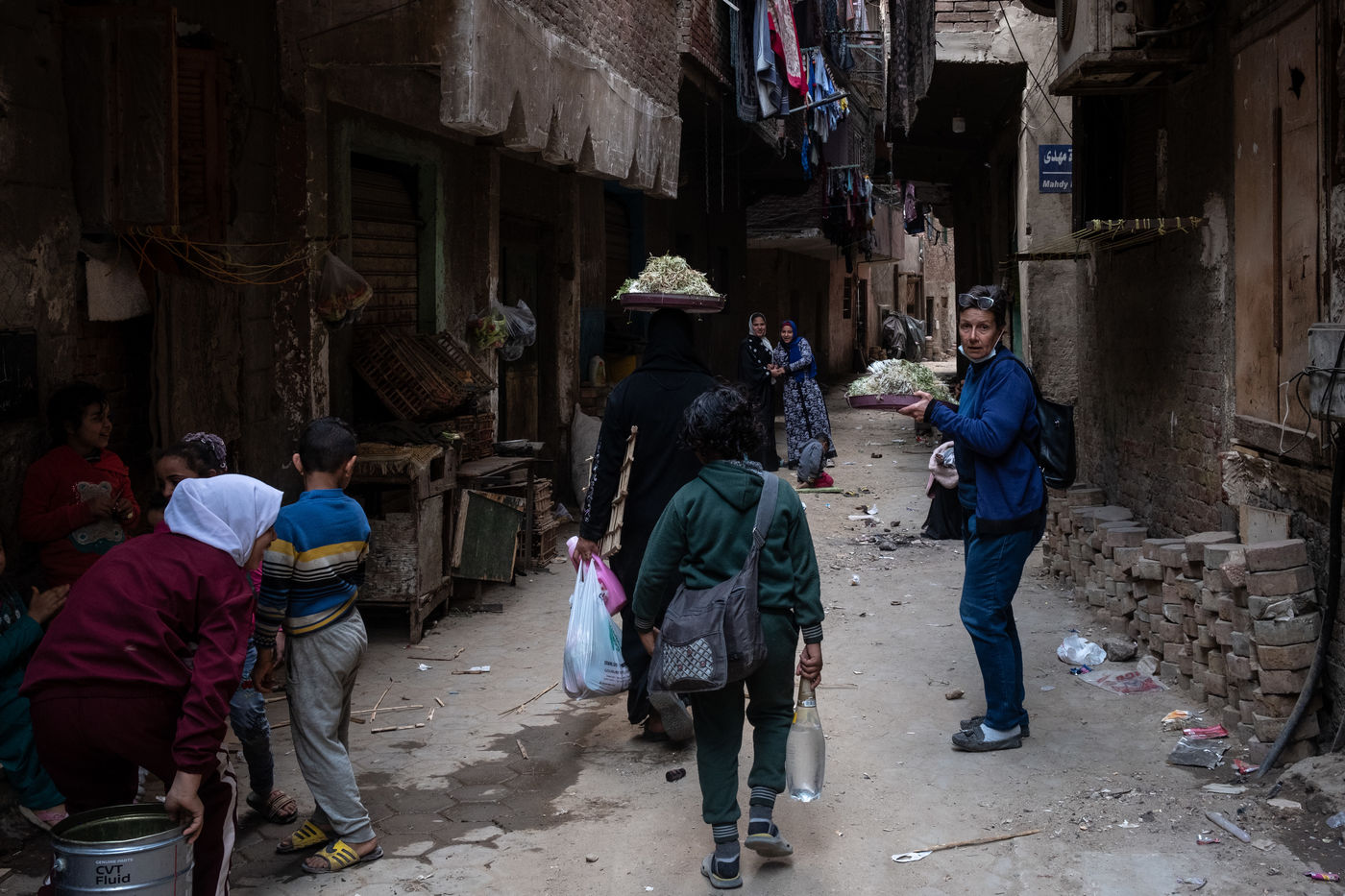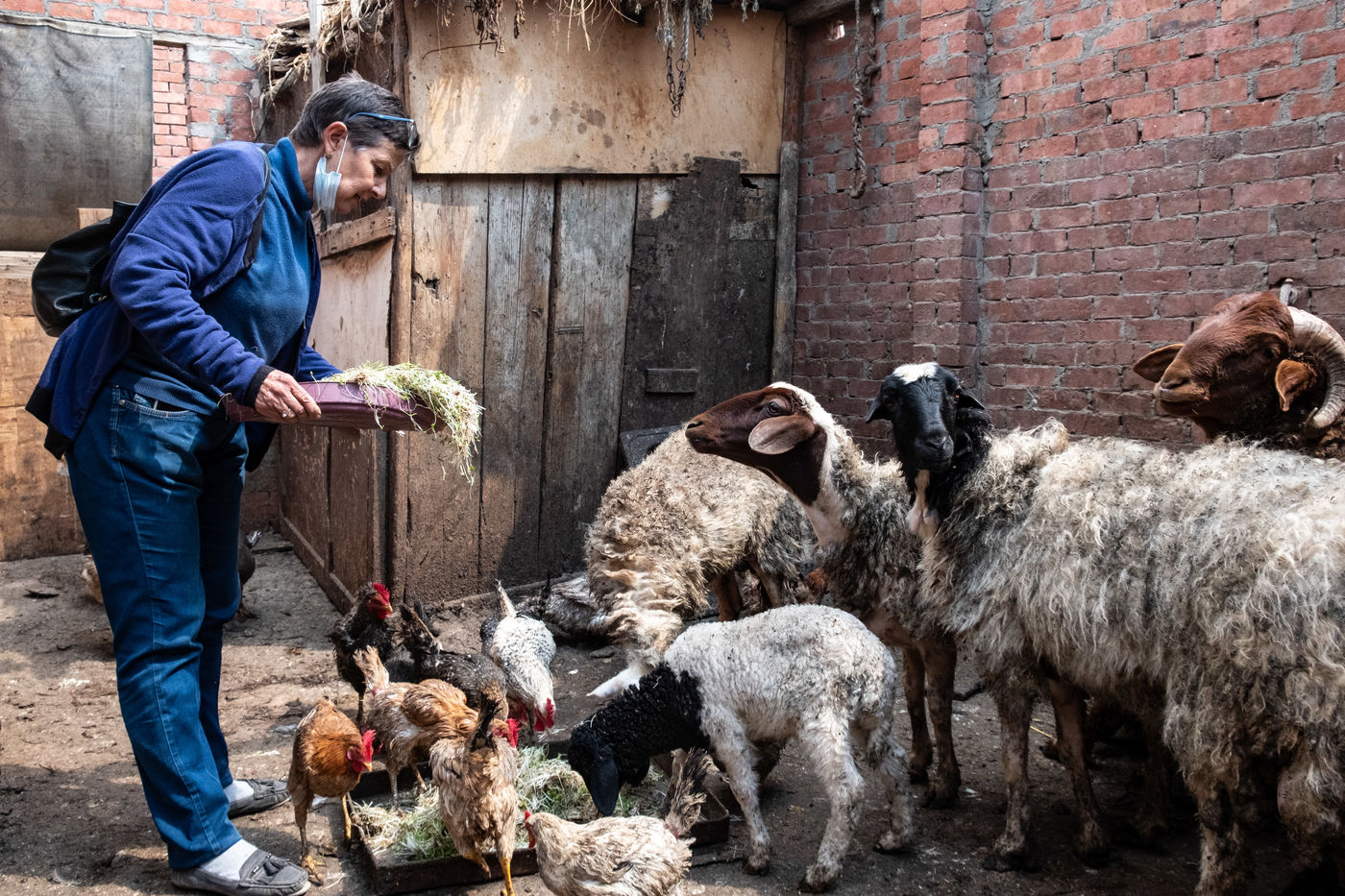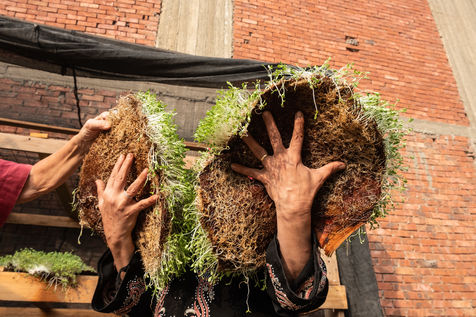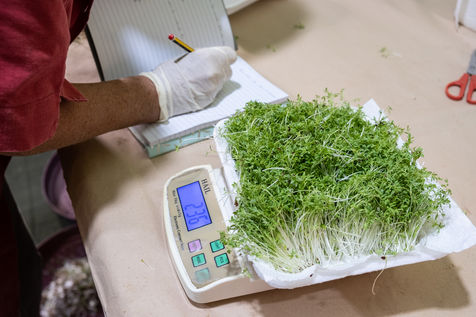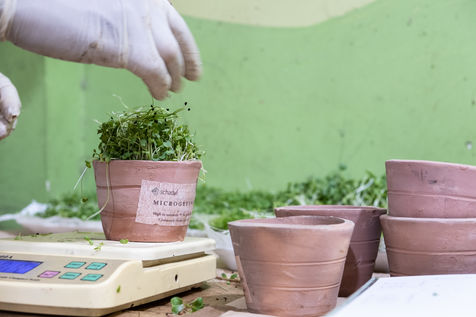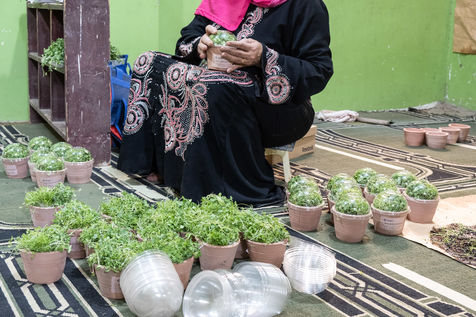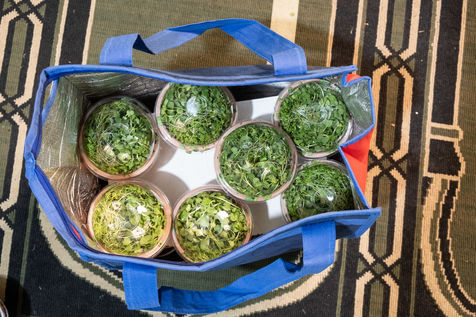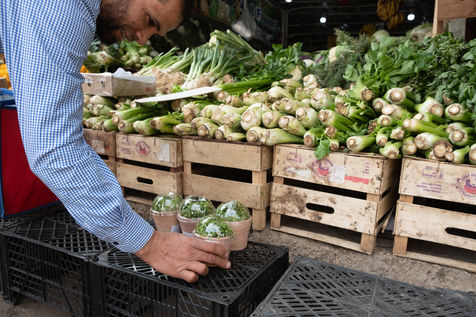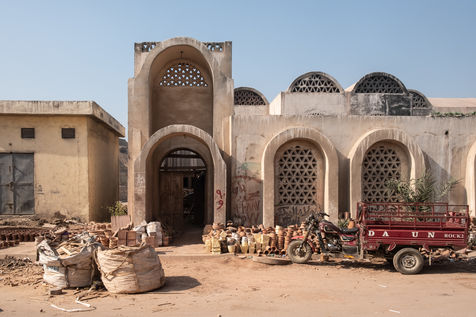Micropousses : une française à l assaut des assiettes egyptiennes
Agnes Hamza est une française installée au Caire, en Egypte.
L enseignante d arabe est arrivée de la région parisienne il y a 33 ans et y a fondé sa famille.
Aujourd hui à la retraite, elle s est investie depuis 3 ans dans un projet de culture de micro-pousses (très jeunes pousses) initié par une entreprise locale, Schaduf, qui lui en a transféré la réalisation.
Ce mini-projet, pour l instant informel, est saisonnier (de octobre à début mai) à cause des fortes chaleurs estivales.
Il a pour objectif de produire une nourriture saine et biologique et de développer le goût pour les saveurs et une alimentation nouvelles.
C est dans le quartier populaire et conservateur de Al-Basatine que Agnès a rencontré Taha et sa femme.
Taha, très intéressé par la culture, est également le responsable d une mosquée et c est sur le toit de celle-ci que, depuis deux ans, ils développent la culture des micro-pousses, qu il consomme lui-même avec sa famille.
Il s occupe des plantations. Agnès gère les achats (petit matériel, écorces de palmier, pots en terre, étiquettes, plateaux, graines, etc.) et la distribution, tout en participant activement, chaque mardi, à la récolte et au conditionnement.
Les déchets des micro-pousses sont ensuite donnés aux animaux (poules, moutons, etc.) élevés sur les toits des bâtiments adjacents.
Si les micro-pousses sont tendances dans le monde occidental, le produit est nouveau sur les étals égyptiens.
En dépit de l accessibilité du produit, les consommateurs sont majoritairement des expatriés et des égyptiens aisés du quartier résidentiel de Maadi.
Agnès devra donc bientôt faire un choix : pour distribuer ses produits très goûteux à des chaînes de supermarchés et à des restaurants intéressés par son initiative, il va falloir qu elle sorte de l informel et qu elle crée son entreprise. Un nouveau challenge pour une femme résolument tournée vers le bien-être alimentaire.
Microgreens: a French woman takes on the Egyptian plate
Agnes Hamza is a French woman living in Cairo, Egypt.
The Arabic teacher arrived from the Paris region 33 years ago and started her family there.
Now retired, she has been involved for the past three years in a project to grow micro-sprouts (very young shoots) initiated by a local company, Schaduf, which transferred the project to her.
This mini-project, for the moment informal, is seasonal (from October to the beginning of May) because of the strong summer heat.
Its aim is to produce healthy, organic food and to develop a taste for new flavours and food.
Agnes met Taha and his wife in the popular and conservative neighbourhood of Al-Basatine.
Taha, who is very interested in culture, is also in charge of a mosque and it is on the roof of the mosque that, for the past two years, they have been developing the cultivation of microgreens, which he consumes himself with his family.
He takes care of the planting. Agnes manages the purchases (small equipment, palm bark, earthen pots, labels, trays, seeds, etc.) and the distribution, while actively participating every Tuesday in the harvesting and packaging.
The waste from the microgreens is then fed to the animals (chickens, sheep, etc.) raised on the roofs of the adjacent buildings.
While microgreens are a trend in the Western world, the product is new to Egyptian shelves.
Despite the product's accessibility, consumers are mostly expatriates and wealthy Egyptians from the residential area of Maadi.
Agnes will soon have to make a choice: to distribute her very tasty products to supermarket chains and restaurants interested in her initiative, she will have to leave the informal sector and set up her own business. A new challenge for a woman who is resolutely focused on food wellness.

